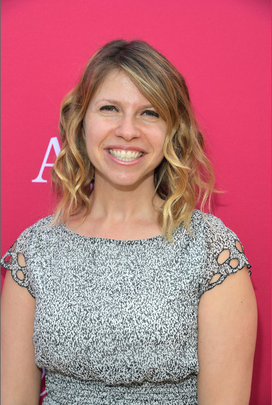Director Valerie Weiss ’95 Shows Range in Film, TV

For director Valerie Weiss ’95, 2016 has been a busy year. In the spring, her feature film A Light Beneath Their Feet hit theaters, after circulating at festivals the previous fall. In April and May, she shot her first action film, The Archer, due out next year. And November saw the release of “Maryellen 1955: Extraordinary Christmas,” an American Girl Story holiday special running on Amazon Prime video.
Weiss’ 2017 schedule is starting to fill up, too: Last week, she booked her first directing gig for network TV, an episode of NBC’s Chicago Med that will film in February.
Each project holds a special place for Weiss. A Light Beneath Their Feet, she says, is “a naturalistic, nuanced drama” about a mother with bipolar disorder and a daughter preparing to leave home for college. (It’s now available on Netflix). The Archer features female leads and a theme of empowerment that Weiss says runs counter to the often-exploitative tendencies of the action genre. “I feel like the studio was really supportive of that message and that vision,” she says. “I can’t wait for it to come out.”
Working on Chicago Med will take Weiss back to her graduate studies at Harvard, where she earned a master’s degree in medical sciences before completing her Ph.D.
But the American Girl Story may be the biggest hit in Weiss’ home: “I have two little girls who are obsessed with American Girl,” she says. “So many of my movies my kids can’t watch. To be able to make something that they can be proud of and see their Mom doing is really important.”
Weiss’ path as a director began in Princeton’s black-box theaters. A molecular biology major who also had studied acting since age 9, she got involved in the student theater scene in her freshman year. (She met her future husband, Rob Johnson ’92, when they were in the cast of Cyrano de Bergerac.) As a sophomore, Weiss directed her first one-act play on campus and found a new niche.
“For the first time, I felt like I was using both sides of my brain,” she says. “In molecular biology class I would use one side, and in acting class I would use another. But with directing, I was totally engaged.”
Managing a cast (and a budget) made Weiss feel “entrepreneurial,” she says, and her start-up spirit carried over to graduate school at Harvard, where she started a film program for grad students while pursuing a Ph.D. in biological chemistry and molecular pharmacology.
Weiss says that she tries to choose projects that are intellectually challenging for the director — and thought-provoking for audiences. The process of making a film has plenty of rewarding moments, from crystallizing the initial vision to working with the actors to bringing together the right music for the soundtrack.
Sometimes, Weiss says, the rewards come after the film is complete, at talk-back sessions, where viewers respond to the themes she envisioned.
“It’s like getting data that corroborates another data point,” she says. “The scientist in me really likes that validation.”











No responses yet